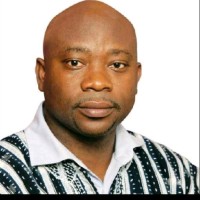Kwakye Ofosu Calls for Quick Power Transition to Prevent Post-Election Violence

Felix Kwakye Ofosu, the Minister of State for Government Communication, has called for a reduction in the transition period following elections to minimize post-election violence and ensure a smoother handover of power. Speaking on The Point of View on Channel One TV on February 10, Kwakye Ofosu linked the prolonged transition period to incidents of unrest, particularly those allegedly caused by supporters of the National Democratic Congress (NDC). He emphasized that an extended delay between elections and the assumption of office by a new government creates a governance vacuum, which fuels political tensions and violence.
Kwakye Ofosu explained that the winning party is not in charge during this transition period, and the incoming president cannot make decisions or implement policies. Although the incoming leader may receive security briefings, they cannot fully assume power. Meanwhile, the outgoing government, feeling dejected after losing, is often disengaged, simply going through the motions until the handover. This gap in governance, Kwakye Ofosu argued, leaves room for disgruntled supporters of political parties, especially those with past grievances, to create chaos. He referenced the 2016 incidents, where party activists took to the streets to protest their frustrations.
The minister strongly condemned post-election violence and the destruction of state property, calling such behavior a deeply ingrained part of Ghana’s electoral process. He stated that post-election conflicts have become a recurring feature and urged for structural reforms to address the issue comprehensively. “It’s not just a transient issue—it’s a sub-culture,” Kwakye Ofosu said, stressing that it has become entrenched in the country’s electoral system and requires a thorough, long-term solution.
Kwakye Ofosu also pointed out that security agencies play a critical role during transitions, but often hesitate to take action due to fears of political repercussions under the incoming government. This hesitation, he argued, emboldens party supporters to engage in unlawful behavior, as law enforcement officers feel uncertain about their job security and are reluctant to enforce the law.
In response, the minister proposed reducing the transition period so that the incoming administration can immediately take control of security and governance. He referred to the UK’s electoral process as an example, where the new prime minister assumes office the day after an election, ensuring a seamless transition without any gaps or political uncertainty. “In the UK, the day after elections, the new prime minister moves in while the outgoing prime minister moves out. There’s no gap, no vacuum. That ensures a smooth transition. In our case, the process allows room for unnecessary tensions to rise,” he explained.
While acknowledging that Ghana has made significant strides in election management, having successfully navigated eight peaceful power transfers since 1992, Kwakye Ofosu argued that the country still struggles with post-election management, particularly in the immediate aftermath of election results. He emphasized the need for clear institutional mechanisms to handle this crucial period effectively.
Reflecting on Ghana’s history of chaotic transitions, the minister recalled the challenges faced in the 2000 and 2009 transitions, where there were significant instances of political instability and disputes over authority. He noted that prior to 2012, there was no formal structure for transitions, making the handover process disorderly. It was only in 2012 that substantial efforts were made to formalize and improve the transition process.
Kwakye Ofosu’s remarks highlight the importance of reforming the transition process to ensure a peaceful, efficient, and uninterrupted handover of power, and to avoid the political violence that has marred previous transitions in Ghana’s history.







